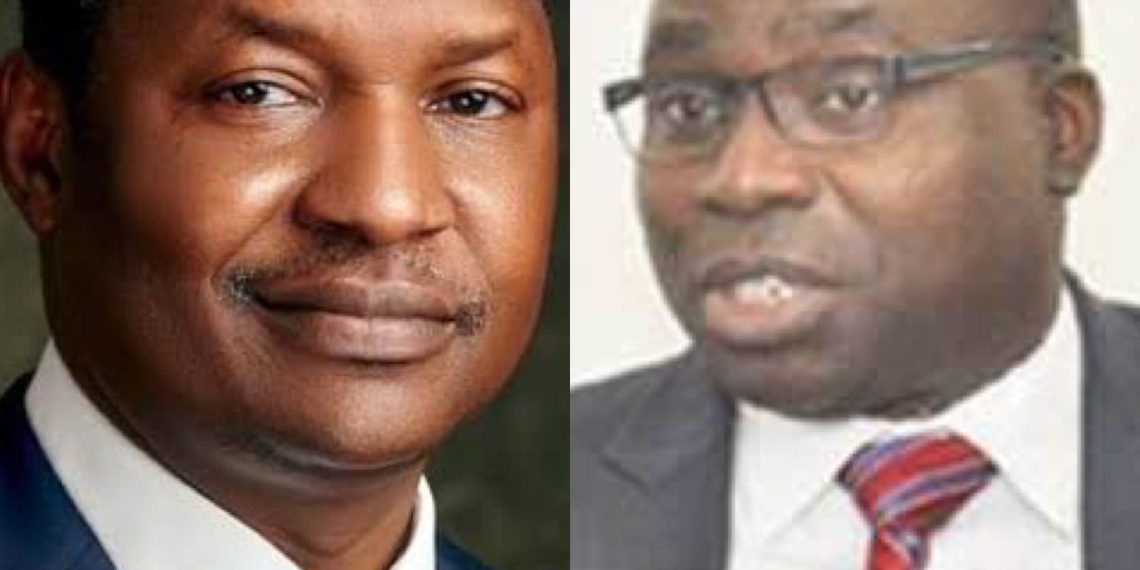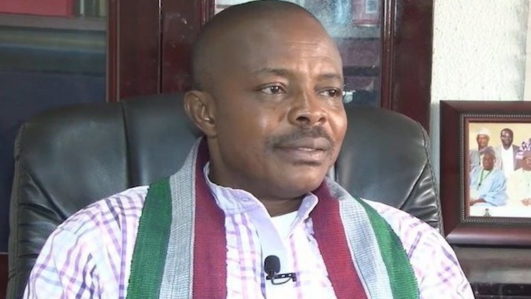The Nigerian government has recovered over $700 million (about N288 billion) stolen funds stashed in foreign countries in the past four years, the Attorney General of the Federation and Minister of Justice, Abubakar Malami, has said.
He said the recoveries were made possible through “proactive and collaborative” efforts of foreign nations such as the United States, the United Kingdom, Bailiwick of Jersey, Switzerland, and Ireland.
Mr Malami spoke on Tuesday at the International Conference on Illicit Financial Flow (IFF) and Asset Recovery organised by the Independent Corrupt Practices and Other Related Offences Commission (ICPC).
He disclosed that developing countries in Africa lost over $148 billion to corruption annually partly due to IFFs.
“Nigeria, through proactive and collaborative efforts with other countries has recovered and ensured the return of over $700 million from the United States, the United Kingdom, Bailiwick of Jersey, Switzerland, and Ireland in the past four years.
“We are still working with our international partners and other countries to ensure that all Nigeria’s assets that are identified are recovered,” he said.
Mr Malami had also, on Tuesday, said that the country had received a fresh £4.2million (at N2.9billion at unofficial exchange rate) from the United Kingdom recovered from the convicted former Governor of Delta State, James Ibori’s associates and family members.
His spokesperson, Umar Gwandu, disclosed this via a statement sent to journalists.
Many Nigerians have, however, repeatedly expressed concerns about the true state of the recovered loot and its transparent utilisation of the recovered funds especially as the government junkets around the globe to borrow funds.
For instance, the Socio-Economic Rights and Accountability Project (SERAP) in August 2020, sued President Muhammadu Buhari over failure to “disclose information and documents relating to the names of people from whom N800 billion in looted public funds have been recovered, specific dates of the recovery, and details of projects on which the money has been spent.”
Meanwhile, at the conference, Mr Malami, who was represented at the virtual conference by the Senior Special Adviser to the President on Justice Sector Reforms, Juliet Ibekaku-Nwagwu, expressed worries that IFFs have become rife and growing at 20.2 per cent annually in Africa because of weak national and regional capacity to stem the tide.
He lamented that the illicit movement of huge funds out of Africa had resulted in underdevelopment and insecurity across the continent.
“No doubt, the impact of such criminal flow of funds means lack of health and education services, low levels of growth, high level of poverty and lack of infrastructure in many African countries.”
The minister also said the government was using different mechanisms, including a voluntary asset declaration process approved by President Buhari in Executive Order 008.
He said, “In this way, we believe that if Nigerians or Nigerian entities come forward to declare their assets wherever located, the government will apply a levy against those assets.
“And also bring the assets within the tax regime. We are also considering different ways to apply non-conviction based procedures in asset recovery to make it less cumbersome and to reduce the time spent in court.
“The focus of law enforcement should be to move towards contemporary developments in international law–one of which is to move against assets that are illicit with or without a criminal conviction, especially where there is a voluntary declaration, a plea bargain or where the person in question has absconded.
In his remarks, the ICPC Chairman, Bolaji Owasanoye, noted that the effect of IFFs on developing countries in Africa was huge.
He stressed that the need to tackle the menace, which falls under the mandate of the commission, had become paramount in order to shore up the dwindling revenue of the federal government.
He said, “Estimates of the quantum of IFFs lost globally vary, but it is generally agreed that a significant proportion of the loss is suffered by developing countries. African countries are particularly affected by loss through IFFs thus depriving the continent of much-needed resources for development.”
Also speaking at the conference, the Minister of Foreign Affairs, Geoffrey Onyeama, who was represented by the Permanent Secretary of the Ministry, Gabriel Aduda, said the ministry was working assiduously to ensure the return of stolen funds and assets to Nigeria.
Mr Onyeama said IFFs are responsible for many of the country’s societal ills and underdevelopment, adding that the federal government had put in place measures to block illicit outflows of funds.
He said, “Illicit Financial Flows deny developing countries of vital resources that belong to them; resources that should have been spent on their development priorities. It reduces tax revenues, hinders development endeavours, undermines constituted authorities and threatens the stability and sustainable development of all affected states.
“IFFs also provide the financial network that supports terrorist activities, fuels conflict and leads to internal displacement and refugee conditions, divert money from public priorities and hampers government effort to mobilise domestic resources.
“The most effective deterrent remains to ensure that proceeds of IFFs are recovered and returned to countries of origin. It is for this reason that the government of Nigeria will continue to call on leaders whose countries are the main destination for IFFs to take concrete steps to prevent and stop the receipt of such funds into their countries, assist in tracing, freezing, seizing and returning illicit assets and its proceeds, already in their countries.”
The minister reiterated that Nigeria will not succumb to any stringent condition as it fights to ensure the return of funds and assets stolen from the country by corrupt people.
According to him, “Let me also add that any imposition of tough conditions for returning proceeds of illicit origin, in the face of the current financial difficulties and the economic hardship and recession occasioned by the rampaging impact of COVID-19 pandemic would be counter-productive. I, therefore, encourage representatives of countries of destination to consider waiving, or reducing to the barest minimum, the processes and costs of recovery.”
In his contribution, Olanrewaju Suraj, Chairman, Human and Environmental Development Agency (HEDA) said the political will of African states was important in stemming the tide of IFFs, while suggesting serious and aggressive combat of the menace.
Mr Suraj, who said that some governments in Africa had shares in the big companies that engage in IFFs thereby slowing down the progress of stopping it, charged victim countries to challenge beneficiary countries as encouragers of IFFs.
He suggested that law enforcement agencies and the civil society organisations of victim states should collaborate with their counterparts in beneficiary states to be able to exert enough pressure.

 News3 years ago
News3 years ago
 Entertainment2 years ago
Entertainment2 years ago
 News3 years ago
News3 years ago
 Privacy3 years ago
Privacy3 years ago
 Sports2 years ago
Sports2 years ago
 Entertainment2 years ago
Entertainment2 years ago
 News3 years ago
News3 years ago
 Opinion3 years ago
Opinion3 years ago



